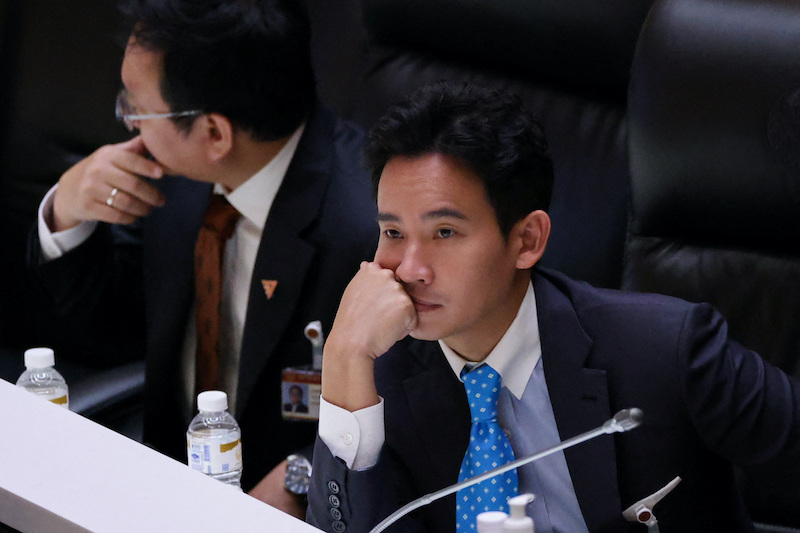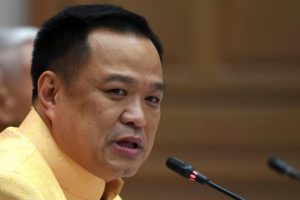Thailand’s stark political divisions intensified on Wednesday when the country’s top court ordered the dissolution of Move Forward, a popular progressive party that won the most seats in the 2023 national election.
The verdict to dissolve the Move Forward Party stems from its campaign to amend the lese majeste law which protects the monarchy from criticism. In a unanimous ruling, the Constitutional Court said Move Forward was guilty of “undermining the monarchy.”
The decision to ban the party and its executives is likely to see most of its MPs regroup in a new party. But some analysts fear it could spur more political turbulence, as rulings on other potentially serious cases loom in coming weeks, which could disrupt the current ruling coalition headed by Pheu Thai Party.
ALSO SEE: Rush to Buy Chips Lifts China’s Imports But Exports Softer in July
The disbandment of Move Forward is a setback for major political parties, which remain embroiled in a tumultuous two-decade battle for power with an influential nexus of conservatives, old money families and royalist generals.
The decision comes six months after the same court ordered Move Forward to drop its plan to reform a law on royal insults, ruling it was unconstitutional and risked undermining Thailand’s system of governance with the king as head of state. Move Forward denies that.
Though the dissolution is likely to anger millions of young and urban voters who backed Move Forward and its progressive agenda, the ruling was not a shock, given Thailand’s recent history of dissolving parties opposed by military leaders and the country’s influential elite.
Cracks in ruling coalition
Some analysts expect the impact to be limited, as only 11 of the party’s current and former executives were banned from politics for 10 years.
That means 143 of its lawmakers will keep their seats and are likely to reconvene under under a new banner, as they did in 2020, when predecessor Future Forward was disbanded over a campaign funding violation.
If all join the same party, it would be the biggest in parliament and would be expected to continue a progressive agenda that includes reform of the military and undoing big business monopolies. Those policies were reasons why its conservative rivals moved to block it from forming a government last year.
The decision comes at critical juncture in Thai politics, with cracks appearing also in an uneasy truce between the royalist establishment and its longtime rival Pheu Thai, the third incarnation of a populist party founded by former prime minister Thaksin Shinawatra.
The Constitutional Court will next week decide on a case brought by 40 conservative former senators seeking to dismiss Prime Minister Srettha Thavisin over his appointment to cabinet of a lawyer who served time in jail.
Srettha, a former real estate tycoon, denies wrongdoing and says the appointment was above board.
His case is among factors that have heightened political uncertainty and roiled financial markets, with the prospect of political upheaval if he is removed.
A new premier would need to be voted on by parliament, potentially pitting Pheu Thai against coalition partners and leading to a shakeup of the governing alliance and realignment of cabinet and policies.
- Jim Pollard with Reuters.
ALSO SEE:
Rush for Thailand’s $14-Billion Handout Scheme Hit by Glitches
Thai Economy Rocked by Factory Closures, Cheap Chinese Imports
Scamming Compounds in SE Asia Stole $64 Billion in 2023: Report
Thai Economy Recovering, But Clouds Linger Over Poll Outcome
Shadow of Thailand’s Military Hangs Over Latest Election Win
China’s Hozon Taps Thailand to Make EVs For Southeast Asia
Apple in Negotiations to Manufacture MacBooks in Thailand
Elon Musk’s Tesla Launches Two EV Models in Thailand






















